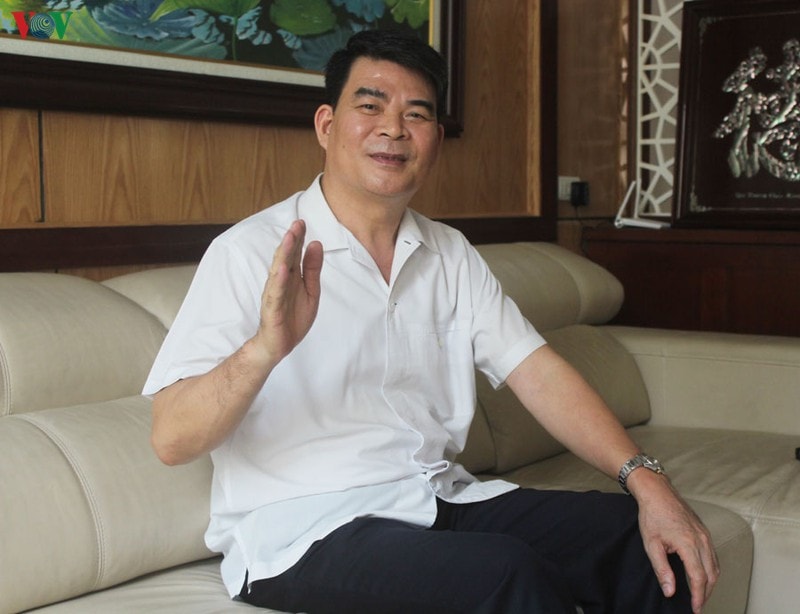Pilot merger of departments and branches: Avoid the situation of 'losing talented people, gaining relatives'
Personnel work when merging departments and branches must be monitored systematically, and personnel must be evaluated impartially, fairly, objectively and honestly.
Put the right person in the right job
The Ministry of Home Affairs has just issued a document requesting the People's Committees of provinces and cities, after receiving the consensus of the Standing Committee of the provincial Party Committee and the Provincial People's Council, to register to pilot the merger of a number of specialized agencies under the People's Committees of the provincial and district levels.
Accordingly, at the provincial level, there will be a pilot merger of 8 departments into 4, reducing 4 units compared to present. At the district level, there will be a pilot merger of 6 departments and offices into 3 district-level departments and offices, reducing 3 units.
|
| Former Deputy Minister of Home Affairs Nguyen Tien Dinh. |
“To do a good job of merging specialized agencies, first of all, it is necessary to do a good job of ideological work so that civil servants and public employees are aware of this in order to improve the effectiveness and efficiency of state management, to streamline the apparatus. All cadres and party members need to clearly see their responsibilities, cannot let the apparatus become cumbersome and sometimes because of the overlap and interference in functions and tasks, they do not want to take responsibility” - Mr. Nguyen Tien Dinh emphasized.
According to Mr. Nguyen Tien Dinh, the Departments and branches are under the comprehensive leadership and direction of the Provincial People's Committee from their functions and tasks to their personnel work; while the Ministries only provide guidance on professional expertise, so when merging, there will be no overlap. In the immediate future, when the 2 Departments merge into 1, the 2 vertical management Ministries will continue to provide guidance on professional expertise. However, gradually, step by step according to the roadmap, the management Ministries will have to be recalculated.
He also said that, along with the consolidation of departments and branches, it is necessary to review and re-study the management functions and tasks of State administrative agencies to suit the current market conditions and mechanisms. Many tasks that State administrative agencies do not necessarily have to do can be transferred to socio-political organizations to perform. Currently, the State administrative reform program is also following this direction to focus on the tasks of policy making, institutions, inspection and supervision.
“In the past, we took on too many tasks, leading to a cumbersome apparatus. Now, we focus on defining job positions that are suitable for current conditions. The State does not directly do all the work, but transfers it to lower-level departments,” said Mr. Dinh.
Emphasizing that the merger of specialized agencies is also an opportunity to screen and rearrange the organization of staff, Mr. Nguyen Tien Dinh said that to do this well requires the leader to be impartial, objective, and transparent.
“The rearrangement may make some cadres feel “from head to deputy”, but the experience from some ministries and localities that have done this well shows that it is necessary to do it synchronously from ideological work to policy and cadre work. For redundant cadres, there needs to be a policy to support and change jobs appropriately” - said the former Deputy Minister of Home Affairs.
Evaluation of cadres must be fair and objective.
Sharing the same concern, Deputy Head of the National Assembly Delegation of Dong Thap Province Pham Van Hoa said that, implementing Resolutions 18 and 19 of the Central Executive Committee, agencies and units are currently reorganizing and rearranging to reduce intermediary units and streamline staff.
Currently, the National Assembly Standing Committee has voted to approve the arrangement of administrative units at commune and district levels in some localities that do not meet the two conditions of natural area and population size.
|
| Delegate Pham Van Hoa. |
According to the report, although some localities initially encountered difficulties in implementation, especially in the work of arranging and assigning cadres, as well as the regime and policies for redundant cadres, with a determined spirit, Party committees and authorities at all levels from the province to the grassroots level all made efforts to implement them with creative and effective methods.
“The number of redundant staff after the reorganization of commune and district-level administrative units will certainly be greater than the number of redundant staff after the merger of departments and branches. However, localities have reasonable calculations and arrangements. I believe that, from these experiences, when piloting the merger of specialized agencies under the People's Committees at the provincial and district levels, we will do a good job of arranging and assigning staff, selecting dedicated, capable and highly responsible people,” said Mr. Pham Van Hoa.
The Deputy Head of the National Assembly Delegation of Dong Thap province noted that personnel work must be monitored systematically, and cadres must be evaluated impartially, fairly, objectively, and honestly. If not careful, it will be easy to arrange "descendants", relatives, and acquaintances for key positions, replacing redundant positions.
“The merger must ensure that the apparatus is both compact and refined, and must be especially careful, paying attention to avoid “losing talented people and gaining family members”. Accordingly, to solve the problem of redundant personnel, it is necessary to monitor the operation process, classify and evaluate cadres and employees accurately and objectively in order to select and retain dedicated and capable people in the apparatus” - Mr. Pham Van Hoa said and emphasized that to choose the right person for the right job requires the role and responsibility of the leader to be very large./.

List of 14 provincial and district agencies that will pilot the merger
(Baonghean.vn) - On November 27, 2019, the Ministry of Home Affairs issued Document No. 5898/BNV-TCBC on the pilot registration of merging specialized agencies under the People's Committees at the provincial and district levels.


